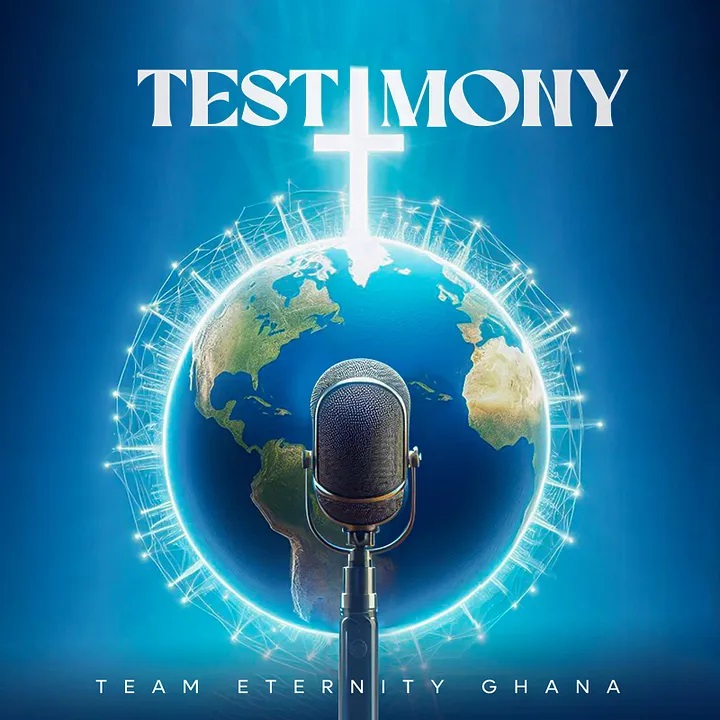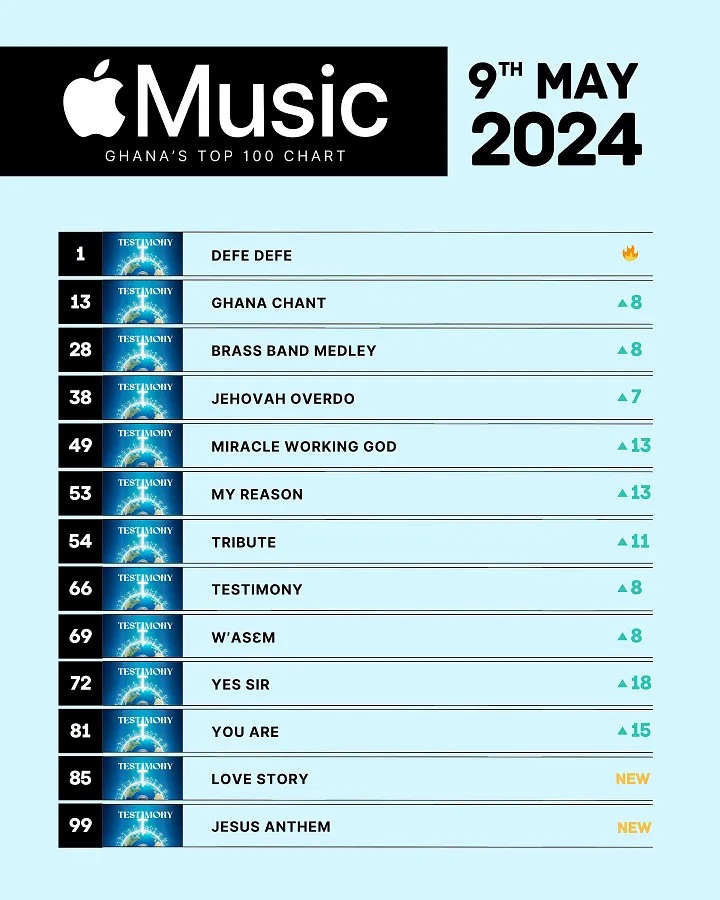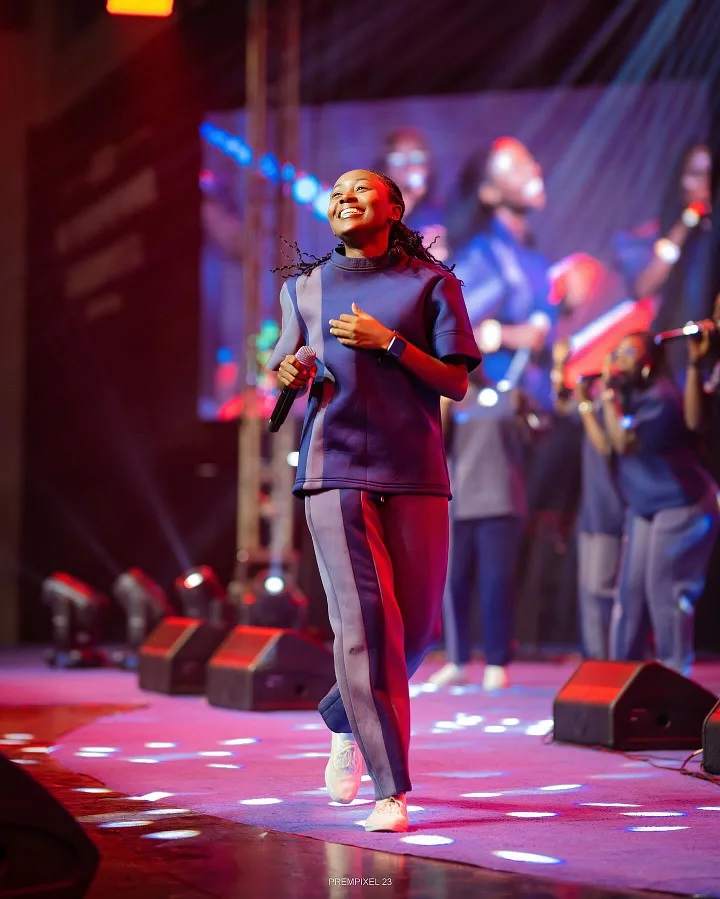What is in the 14-track album of Ghanaian gospel choir, Team Eternity, which has taken over the music charts since it was released?
*****
I loved “Defe Defe” the first time I heard it. As a matter of fact, 30 seconds into my first listen, I sent the song to my colleague at the BBC, Daniel Dadzie. Daniel and I had been talking the night before about Ghanaian gospel collective, Joyful Way Incorporated and their incredible legacy on the local Christian music scene since their formation in 1972.
We both agreed — he more strongly than I — that JWI had such an influence, it would be difficult for any Ghanaian choir to surpass their achievements. Of course, as producers of popular songs like Barima Yesu, Guanhwɛfo, Nyame Ye, and so many other hit songs, JWI is arguably the greatest gospel choir to ever come out of the country. You do not need to take my word for it — check their discography.
Daniel didn’t understand why even though I agreed JWI was the GOAT (Greatest Of All Time) of contemporary gospel choirs in Ghana, I had other personal favourites currently. He asked me, “so which choir is your current favourite?” My answer? Team Eternity! Do not get me wrong. I love JWI to bits. And over the years, I have loved others too. Soul Winners, E’mpraise Incorporated, Harvest Gospel Choir, Bethel Revival Choir, LIC Choir, and all the other collectives. But for the past two years, it’s been Team Eternity.
Daniel didn’t know much about them, even though they have been around for 10 years straight. In fact his most vivid recollection of Team Eternity was from “Yes Sir” — an incredible gospel Amapiano number which we’ll soon come to learn was a part of the latest album from Team Eternity called “Testimony.”

The album is heavy on talents within the choir as majority of the tracks are led by Team Eternity singers. It however features Eben from Nigeria on Jehovah Over Do, Ps Isaiah Fosu-Kwakye on You Are, Lordina the Soprano on Love Story, and Aduberks on Yes Sir. The 14-track album is a delectable cocktail of different genres, from Highlife to Bongo Reggae, to Amapiano and sentimental ballads. There is ‘Jama’ and appellation music too. In short, it’s a full package.
My personal favourite is Track 1 — Ghana Chants — which takes the traditional form of Ghanaian gospel music. It is 13 plus minutes of appellation music with the first 4-and-half minutes being pure chants of the names of God in a local Ghanaian language, Twi. But Track 12, “Defe Defe”, has become the unintended poster boy of the album — and for good reasons.
The title of the song — ‘Defe Defe’ — is an Akan onomatopoeia which translates in English as ‘shattered’ or ‘crushed’. The writers of the song are literally asking to be given space to thank God but for whom their lives would have been shattered or crushed. When you learn of the multiple failed attempts to abort one of the writers, Patrick Adu-Gyamfi, the lyrics make even more sense.
Vessel Chordrick, as he is popularly known, tells the story of how he was nearly aborted by his parents because he was conceived out of wedlock. They tried, thinking they were unprepared for a child, to get rid of him. But by the grace of God, he made it out safely. And so decades later when he writes 'Defe Defe,' he writes it from a place of true conviction. And even better, it is unconventional.
The 6mins46secs song sits on a traditional UK drill beat, away from anything known to be normal on the Ghanaian gospel scene. The lyrics are carefully curated to masterfully combine regular English, Pidgin English and Twi (a local Ghanaian language). The experience of this introduction is further enhanced on the performance video as the rest of the choir joins in with dance moves popularized in Ghana by the Asakaa Boys from Kumerica.
It starts with the lead singer, Naana Asiedu (more on her shortly), vocalizing and adlibbing a few notes to the thumping and clean strokes of the bass and snare drums respectively. Naana solos the English-laden double stanzaed verse for two bars, before cuing in the backup choir. The repeated chordal patterns in the verse get you hooked even before the pre-chorus.
‘Defe Defe’ employs code-switching to journey the entire course of the song which includes a verse, pre-chorus, chorus and a rap, before reprising the chorus as a pay-off. This code-switching style is most popular among young people in Ghana, and it no doubt contributes massively to the song’s relatability — even outside the Christian community. For a choir with a mission to capture and influence young people with the gospel, Team Eternity’s Testimony Album and its unconventional elements show just how much they mean business.
It is not surprising that the album has taken over the Apple Music Charts, with Defe Defe peaking at №1 for 10 straight days.

As of the time of publishing this review, two weeks after the album release, Defe Defe is still sitting pretty at №1 on the Top 100 Chart in Ghana. It is exciting to see a gospel album take over the charts as Testimony has. But it must be said that Team Eternity Ghana did not just burst onto the scene. They have been around for 10 years and Testimony is only its third album. It’s fair to say the latest album is a culmination of experiences and competencies built over the past decade.
The uniqueness of the album, and ‘Defe Defe’ in particular is not limited to any one part of the music, say arrangements or lyrics or genre. It is found in the intentionality behind the entire body of work. It is peerless outing on both vocals and instrumentation. For example, every element on ‘Defe Defe’ adds to the incredible essence of the song. Whether it is as prominent as the drum strokes, heavy as the bass groove, or nearly as imperceptible as the bell chimes which usher in various parts of the song.

There are all of these and then there is Naana Asiedu — the lead singer. Naana is the spice that brings every other ingredient of ‘Defe Defe’ together. Her ad libs and emotive exclamations, brilliantly punctuate the song, leaving an impression on the listener at every turn. She solos, she ad libs, she dances and she raps — a typical example of big things come in small packages. Naana does all these while jumping around on the stage and without losing track of her primary responsibility — hitting her notes!
Her energy is contagious and her presence, even more mesmerizing. Her delivery on the song almost makes you forget about the oldtime classic from the Hallelujah Voices, also titled ‘Defe Defe’. While you should not forget about the ‘Defe Defe’ of old, the ‘Defe Defe’ of 2024 highlights just how far Ghanaian gospel music has come and why it can actually compete to the highest levels in the commercial music space.
******
Written by Manuel Koranteng. International Journalist - Politics | Human Rights | Public Policy | Travel Journaling
Latest Stories
-
Eidul al-Adha: Drugs worse than alcohol – Imam Suleman’s Eidul Adha warning to Muslim youth
10 minutes -
Fuel Levy: What crime have Ghanaians committed? – Dr Amin Adam questions gov’t
1 hour -
Postecoglou sacked by Spurs after Europa League win
2 hours -
Employee fraud is everywhere, be intentional about stopping it – Expert counsels
3 hours -
We have a very good chance of making it to the World Cup – Jordan Ayew
3 hours -
Innovation Hubs as Engines of Sustainability: Charting Ghana’s path with lessons from the Hamburg Sustainability Conference 2025
3 hours -
UHAS makes history with publication of landmark study in Nature Human Behaviour
4 hours -
Asante Gold Corporation commended for community development projects in W/N region
4 hours -
World Environment Day: Stakeholders urge collaborative effort for sustainable ecosystem restoration
4 hours -
Photos: Thousands of Muslims observe Eid al-Adha 2025 at Independence Square
4 hours -
Russia launches ‘massive’ strikes days after Ukrainian drone attack
4 hours -
Ghana, Morocco agree to Visa-free travel for Ghanaians, says Foreign Affairs Minister
4 hours -
Samson Anyenini and OneGhana Movement renew calls for compensation for June 3 victims
5 hours -
California-based VIMA delivers lifesaving borehole to forgotten Ghanaian village
5 hours -
Health Minister calls for independent mediation to end nurses’ strike
5 hours

